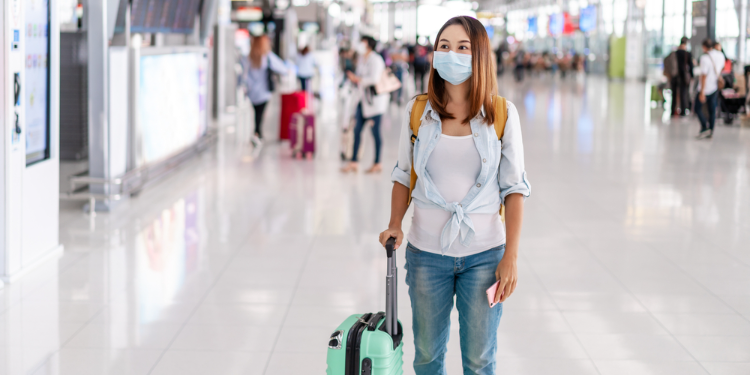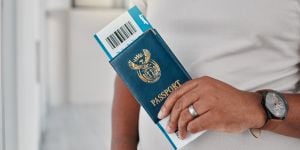
This September, many countries reopened their borders (Canada, Senegal, etc.); others are planning to follow suit (United States, Australia). It is indeed great news for people who were looking to move abroad. The new world map shows a majority of countries open to vaccinated travellers, but with certain restrictions. But immigration still largely relies on government announcements. In such circumstances, considering the pandemic, is it still possible to plan international relocation?
The impact of Covid-19 on immigration
In 2020, the whole world came to a standstill. The first few months of the pandemic led to a total lockdown in many countries. Borders were close, and everyday life was restricted. In this process, thousands of expatriates were separated from their families for many months. Others had to cancel their international relocation plans as visas were no longer being delivered.
Borders closures and reopenings, the vaccination chaos, a fragile labour market are just some of the consequences of the Covid-19 pandemic. All the spheres of life were affected, making it tricky to plan anything, including international relocation.
Still, the lives of expatriates were not as affected as expected. According to several recent polls, most of them were not to be affected by the Covid-19 restrictions and were not considering a return to their home country in the near future. Others chose to relocate to another country or are currently planning their move. But there are also expats who would rather return to their country.
Despite many countries reopening their borders, the future is uncertain. Countries like Japan are keeping their borders closed until further notice, and visas are still suspended. Australia is considering a reopening under strict conditions in December. Argentina is also cautious while monitoring the situation. Thailand was looking to reopen Bangkok and five other provinces in October but postponed its decision to November as the number of Covid-19 cases remains high. Where the borders are open without restrictions (Mexico and Colombia), other states are slowing down international relocation due to health restrictions and political tensions. As of September 25, 34.9% of the Mexican population was fully immunized, and 49.7% had received at least one dose. In Colombia, 32.6 are fully vaccinated, and 50.7% have received one dose.
The impact of the economic crisis
After a record 3.2% drop in 2020, the global economy is showing signs of recovery: + 6% this year, + 4.9% expected in 2022, with big disparities from one region to another. Border closures have had an impact not only on immigration but also on the movement and production of goods such as semiconductors, small electronic components essential to the construction of many goods, including cars, video games, computer equipment, etc. The production of billions of products has slowed down or stopped -- with significant economic, geopolitical and ecological impacts. Unfortunately, expatriates and travellers got trapped in the net, directly affected by these crises and by other issues (shortage of paper, plastic, etc.). Suppression of jobs, partial unemployment, competition with locals, etc., are some of the repercussions. Despite a 6.6% growth forecast, Kenya, the second African power according to the World Bank, focuses on training its elites to boost agriculture and its industries, increase its exports, strengthen digital expansion. Other African giants are applying similar policies: Djibouti (first with a 7.1% growth), Tunisia (3rd, with a 5.8% growth). These figures were quite positive for the year 2020, marked by a strong global recession. But the States reaction of turning in on themselves was another hard blow on immigration.
The pandemic is a game-changer, even for the most attractive expat destinations. In Australia, Japan and Singapore -- which are some of the most popular expat countries, there are strict entry restrictions for travellers. Singapore is currently looking to a total vaccination of its population to stop Covid-19 definitively. As of September 25, 79.2% of its population is fully vaccinated, and 82.1% have received at least one dose. Growth is on the rise again, with 14.7% in the previous quarter. The Singaporean government forecasts a + 6 ~ 7% GDP for 2021. Despite these figures, Singapore opts for nationalization. In March, Joséphine Tao, then Minister of Labor, encouraged companies to "strengthen their Singaporean core". Figures, in fact, mask a more contrasting reality between populations having access to promising jobs (finance, new technologies, IT, etc.) and others, relying mainly on the economic situation. The city-state is thus looking to strengthening its partnerships with other Southeast Asian countries, starting with Viet Nam.
Employment remains a crucial concern for potential expatriates. Do you now have to be rich to emigrate' Thailand's new move in favor of wealthy expatriates is frowned upon by travellers, while expats who are already there point out unfair policies. These benefits are mainly meant for the white-collar and the well-off expats. So it's currently difficult to relocate to Thailand, hoping to find a side job. Expats are in direct competition with locals who are just as affected by the crisis. Meanwhile, other countries, such as Switzerland, Canada or Thailand, are targeting expats with very specific profiles. Foreign professionals transferred directly by their company are preferred, as those working in sectors that were hardly affected by the crisis or in tension or full development: animation, video games, computers, artificial intelligence, robotics, finance, medicine, etc.
Opening/closing of borders and vaccination
Asia has generally opted for a strict border closure. This measure goes hand in hand with its strategy to fight and eradicate Covid-19, if not, to have a fully vaccinated population. Europe views the health crisis differently and plans a new normal along with the pandemic, but always, with the vaccine. Africa urges the international community to honor its commitments. In August, thanks to the Covax program, nearly 21 million doses of vaccine were shipped -- which is as much as the number of doses received by the whole continent over the whole of the past four months. But this remains insufficient. In September, 3% of the African population was fully vaccinated, compared to 52% for the United States and 57% for the European Union, according to WHO figures.
Today, most countries worldwide agree on one point: no movement of individuals without a vaccine. Even when travel and entry without a vaccine are allowed, there are strict conditions, including regular PCR tests (costing up to € 300 in Sweden), isolation or quarantine, -- which are the traveller's responsibility, etc. For expatriates, as for any other individuals, it seems that vaccination against Covid-19 is no longer an option.



















